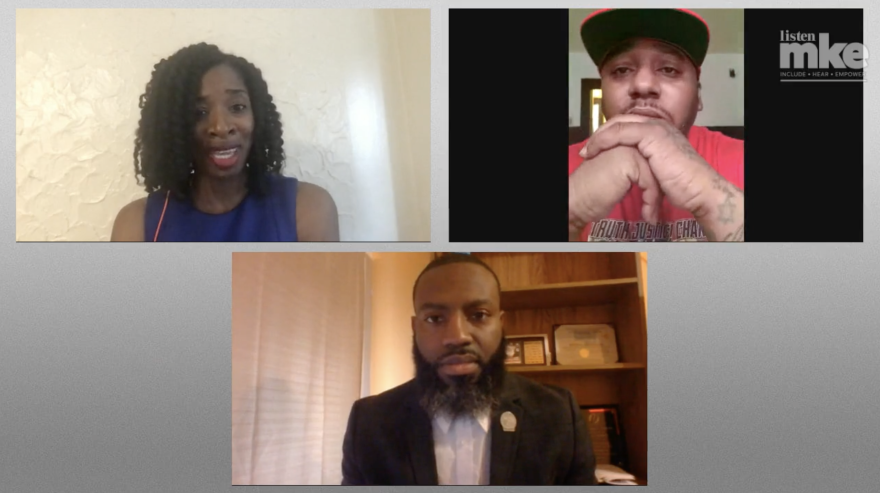WUWM has been partnering with the Milwaukee Journal Sentinel, Milwaukee PBS and the Milwaukee Public Library on an initiative called Listen MKE. Its goal: help north side residents get the information they want and need.
Tuesday, May 25 marked one year since George Floyd was killed by a Minnesota police officer. Following the murder, protests erupted across the country, including here in Milwaukee. Calls for defunding the police remain, as well as frustration by some over the pace at which they see change occurring. So, what has actually changed over the past year and what has not?
On this edition of Listen MKE, WUWM's LaToya Dennis poses that question and more to activist Vaun Mayes and Democratic state Rep. David Bowen.
Mayes says there has been changes made in the last year but the demands that activists in Wisconsin have made are not close to being met. He cites the implementation of body cameras for officers in Wauwatosa as one big win for activists in the Milwaukee area.
The People's Revolution, a group in Milwaukee which has organized over 300 protests since the killing of George Floyd, has set out a list of ten major demands, which include reallocating police funding to other community services, more civilian oversight of police, mandated de-escalation training and requiring police officers to have undergraduate degrees.
"Although I can say we've had some progress and some wins, we are no where near where that list of demands was supposed to take us," says Mayes.
Rep. Bowen says there was a missed opportunity when Gov. Tony Evers called a special session last summer to pass legislation on issues of police reform but Republicans in the Legislature refused to show or take up any votes. Now, he says there are some bills tackling police reform being considered at the Capitol, but he says they aren't enough.
"There's a complete just watering down of real solutions that get to the root of the issue, maybe because it's too uncomfortable to talk about, too uncomfortable to actually deal with," says Bowen.
Republican Assembly Speaker Robin Vos' Task Force on Racial Disparities has issued suggestions on police reform and introduced legislation but Bowen says they didn't go far enough. He says he wants to see bans on no-knock warrants and an end to qualified immunity for police officers, two things not included in the task force's legislation.
LISTEN: Wisconsin Republican Leadership Discusses Police Reform Initiatives
Bowen feels that after historic protests and people taking to the street in the past year to demand change, the Legislature is not taking big enough action.
"We get to this point of actually having action only to be told we're not going to take a step forward, we're not going to take a leap forward, we're going to think about maybe stutter stepping on this issue," he says. "So, it's insulting."
Mayes agrees that current legislation poised to pass does not do enough to fix the issues currently facing policing in Wisconsin.
"People just continue to go back to the status quo, they try to come at you to water down what you're doing to make it not effective," he says.







